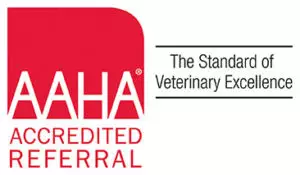Poison Control Reminders to Protect Plainview, NY Dogs and Cats
Poison control and prevention for pets is a major awareness topic for the month of March. Is your home “pet-proofed” to reduce the risk of a poisoning emergency? It’s always necessary to remember that dogs and cats often use their mouths to explore their surroundings, which can put them in danger of ingesting poisons. If you ever have questions about preventing such incidents or need treatment for your pet, be sure to contact us immediately at (516) 501-1700.
Beware of These Common Pet Poisons
Household cleaners and fertilizers aren’t the only substances harmful to dogs and cats. Other items to keep out of your pet’s reach include:
Ingesting grapes/raisins can put your pet at risk for kidney failure, which can be fatal. Don’t leave grapes or a bag of raisins sitting where your pet can easily grab them. If your pet likes to pick out of the garbage, consider switching to a garbage can they can’t get into (this applies to all toxic foods and other items that end up in the trash).
Chocolate is notorious for being toxic to dogs and cats, especially when it contains a higher concentration of cocoa. Any chocolate can be bad news for your pet, however, due to the caffeine and high quantities of sugar. Ingesting too much chocolate can cause stomach upset, muscle tremors, heart arrhythmia, and other health problems.
Xylitol is an artificial sweetener found in a wide variety of treats, including sugar-free gum and candy, breath mints, some peanut butters, and baked goods. You can also find xylitol in toothpaste, vitamins, and mouthwash. Ingesting xylitol is easy enough for us, but dogs and cats can suffer serious consequences, including dramatically lowered blood sugar levels and increased insulin levels. This occurs because pets absorb xylitol much more quickly.
This includes lilies, which are extremely toxic to cats (Easter lilies, Daylilies, etc.), Amaryllis, Azaleas, Autumn Crocus, Daffodils (bulbs), Sago palm, Buttercup, Lily of the Valley, Hemlock, and Oleander (leaves). And don’t forget Poison Oak, Poison Ivy, and Poison Sumac. For a more complete list of toxic plants, click here.
Pets getting into their owners’ pills is an all too common theme. Whether they knock over an open pill bottle or find tablets under the counter on the floor, you should be extra vigilant about how you use and store your medications if you have a pet (or two). Keep all pills in tightly-sealed containers, and keep the containers well out of reach of your pet. Consider taking your pills in the bathroom with the door shut, just in case you drop one, and don’t throw unused pills into the garbage, where your pet might be able to get to them.
Antifreeze is all too attractive for pets, thanks to its sweet smell and taste. Unfortunately, antifreeze is also extremely toxic and can be deadly if consumed in sufficient amounts. Make sure antifreeze containers are sealed tightly and stored out of reach. Check your driveway and garage for antifreeze spills and clean them up right away.
Many people still use rat poison to keep vermin away, but this can backfire on people who own pets. The potential for an accident increases when the spring thaw melts away snow that might be covering rat poison pellets. Keep an eye out for rodenticides around your property, and dispose of them immediately.
Never leave batteries sitting out where your pet can get at them; they contain an extremely toxic substance that can easily leak out if your pet’s teeth puncture the battery. Avoid keeping battery-powered toys in your home, and keep an eye on your TV remote. Believe it or not, even biting the remote can be enough to puncture a battery and result in your pet ingesting toxic fluid.
Yes, these are hazardous to pets as well! These pleasant-smelling sheets are loaded with chemicals, which pose a serious poison hazard to your pet. Ingestion of one of these sheets may also result in choking.
What to do if You Think Your Pet Ingested Poison
If you suspect that your pet has ingested something poisonous, contact our animal hospital at (516) 501-1700. We offer 24/7 emergency care and specialty services by appointment. Our veterinarians are always here to help!


